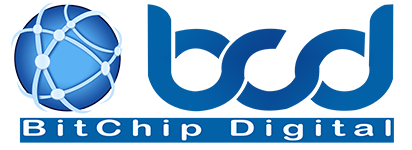
In 2025, businesses continue to rely on outsourcing partners to accelerate digital transformation, reduce costs, and gain access to global tech talent. One of the most reliable choices remains software development company Onix, known for its innovative approach, wide technology stack, and successful project delivery across industries. Alongside Onix, several other market leaders set high standards for outsourcing partnerships worldwide.
Why Do Businesses Outsource Software Development?
Outsourcing offers access to specialized skills, faster time-to-market, and cost optimization. Companies can collaborate with global experts without the overhead of hiring full-time in-house teams, making it a strategic advantage in today’s competitive market.
Another important reason is flexibility. Businesses can easily scale their outsourced teams up or down depending on the stage of the project — expanding resources during product launches or reducing them during maintenance phases. This adaptability helps companies stay agile and avoid unnecessary long-term expenses.
In addition, outsourcing allows organizations to focus on their core business activities. By delegating technical tasks to external experts, internal teams can prioritize strategy, marketing, and customer engagement while still benefiting from top-quality software development.
Best Outsourcing Software Development Companies in 2025
Onix
Onix has established itself as a trusted outsourcing partner with strong expertise in web, mobile, and cloud solutions. The company is widely recognized for its user-centered design approach and ability to turn complex business requirements into intuitive digital products. With a portfolio that spans industries such as healthcare, education, fitness, and e-commerce, Onix consistently delivers solutions that balance functionality and aesthetics. Their teams emphasize long-term cooperation, offering not just development but also ongoing support, product scaling, and modernization. This makes Onix a reliable choice for both startups looking for an MVP and enterprises seeking robust enterprise-grade systems.
Toptal
Toptal provides businesses with access to the top 3% of freelance developers, designers, and project managers worldwide. Unlike traditional outsourcing firms, Toptal operates as a global talent network, ensuring that every expert is vetted through a rigorous screening process. This approach guarantees that companies can build highly specialized teams in technologies ranging from AI and blockchain to enterprise software. Toptal is especially popular with companies that need flexible engagement models, allowing them to bring in top professionals on-demand for short-term projects, rapid scaling, or ongoing development needs.
Intellectsoft
With deep experience in enterprise software and digital transformation, Intellectsoft has become a go-to partner for Fortune 500 companies and ambitious startups. The company offers end-to-end solutions that cover everything from IT consulting and architecture design to mobile and web development. Intellectsoft is especially strong in cloud migration, IoT, and emerging technologies, helping organizations modernize legacy systems and adopt innovative solutions. Their industry expertise spans healthcare, construction, travel, and fintech, where they deliver scalable and secure platforms designed to withstand high loads and meet complex compliance standards.
ELEKS
ELEKS is known for its comprehensive software product development and digital consulting services. The company has over three decades of experience and works with clients in industries such as logistics, retail, and financial services. ELEKS offers strong expertise in data science, machine learning, and advanced analytics, enabling businesses to make data-driven decisions and optimize operations. Their team is also well-regarded for strategic IT consulting, helping companies refine digital roadmaps and achieve measurable efficiency gains. With a strong reputation in Central and Eastern Europe, ELEKS combines technical excellence with a customer-first approach.
Iflexion
Iflexion specializes in custom software development and enterprise solutions. Operating for more than 20 years, the company has built a global presence, serving clients across North America, Europe, and Asia. Their portfolio includes large-scale CRM systems, e-commerce platforms, and industry-specific applications. Iflexion’s strength lies in its ability to adapt to different cooperation models, whether clients need a dedicated team, project-based delivery, or IT staff augmentation. Known for reliability and transparent communication, they consistently provide solutions that align with business goals while maintaining high development standards.
Altoros
Altoros is a leading outsourcing partner for enterprises seeking expertise in cloud automation, blockchain, and AI-driven solutions. Their developers help companies adopt modern cloud-native architectures, optimize DevOps pipelines, and enhance data processing capabilities with advanced AI. Altoros has worked with global enterprises in finance, telecom, and manufacturing, enabling them to modernize legacy systems and embrace digital-first operations. What makes Altoros stand out is its strong focus on open-source technologies and platform engineering, ensuring clients receive scalable, cost-efficient, and future-proof solutions.
Key Benefits of Working with Outsourcing Software Development Companies
Top outsourcing firms provide access to global talent pools, ensure cost efficiency, offer flexible cooperation models, and maintain high quality standards through proven methodologies. Beyond these fundamentals, outsourcing also enables companies to tap into diverse technical expertise that may not be available locally. For example, while one region may excel in cloud solutions, another might lead in AI or blockchain development — outsourcing bridges this gap by giving access to the best specialists worldwide.
Another key benefit is risk management. Established outsourcing companies follow well-defined processes, maintain certifications, and adhere to international compliance standards, reducing risks related to security, data protection, or project delays. This level of professionalism allows businesses to focus on growth while trusting that technical execution is in safe hands.
Finally, outsourcing enhances innovation capacity. By working with partners who have already implemented solutions across multiple industries, companies gain fresh insights and best practices. This often results in more creative approaches, faster problem-solving, and products that are competitive in rapidly evolving markets.
The Process of Outsourcing Software Development
Outsourcing typically involves defining requirements, choosing the right vendor, establishing communication frameworks, and ensuring proper quality assurance at every stage. The process usually begins with project discovery, where businesses outline their goals, technical requirements, and expected outcomes. This step is crucial to align expectations and avoid miscommunication later.
The next phase is vendor selection, where companies evaluate potential partners based on expertise, case studies, and cultural compatibility. Once a partner is chosen, a cooperation model is agreed upon — ranging from dedicated teams to fixed-price projects. At this stage, communication channels, project management tools, and reporting schedules are established to ensure transparency.
Development then moves into execution, where the outsourcing partner handles coding, design, and testing while maintaining continuous feedback loops with the client. Finally, the process includes quality assurance and ongoing support, ensuring that the product meets high standards, remains scalable, and receives updates after launch.
This structured approach not only guarantees successful delivery but also builds the foundation for long-term collaboration between businesses and outsourcing partners.
How to Select the Right Outsourcing Partner
Choosing the right outsourcing partner is often the most critical step in ensuring the success of a project. With hundreds of vendors across the globe, businesses need a structured approach to selecting a company that aligns with their technical and strategic needs.
The first thing to consider is expertise in your domain. A reliable outsourcing partner should not only have experience with the technologies you require but also demonstrate a clear understanding of your industry. For example, a fintech startup will benefit more from a company that has built secure payment platforms than from one specializing in e-commerce. Domain knowledge ensures faster onboarding and fewer errors.
It is also important to review case studies and client testimonials. Reputable companies openly share success stories, project outcomes, and measurable results from past collaborations. Client reviews — especially those from similar industries — are a good indicator of reliability and consistency. This background research can help you understand how a vendor handles challenges and whether they deliver on their promises.
Another key factor is to evaluate communication and project management processes. Effective outsourcing depends on clear communication, well-defined reporting, and the use of modern collaboration tools. Companies that provide dedicated project managers, follow agile methodologies, and maintain regular progress updates are more likely to deliver successful results.
Finally, businesses should consider scalability and flexibility of cooperation. A strong outsourcing partner will be able to adjust team size based on project requirements, provide different engagement models (dedicated teams, time & material, or fixed-price), and remain flexible in adapting to changes. This ensures that the partnership can evolve along with your business needs without unnecessary complications.
Conclusion
Outsourcing software development in 2025 remains one of the most strategic decisions companies can make to stay competitive. By working with the right partner, businesses gain access to specialized expertise, reduce costs, and accelerate their digital transformation. Companies like Onix and other industry leaders continue to prove that outsourcing is not just a cost-saving tactic but also a powerful growth enabler.
The most successful collaborations happen when businesses choose partners carefully, focusing on domain expertise, strong communication, and scalable engagement models. With the right approach, outsourcing enables innovation, efficiency, and long-term growth, helping companies remain agile in an increasingly digital world.
FAQ’s
What industries benefit most from outsourcing software development?
Industries like healthcare, fintech, e-commerce, and logistics gain the most by leveraging outsourcing for faster digital adoption. These sectors require scalable, secure, and customer-focused solutions, making them ideal candidates for outsourcing partnerships.
How do I ensure data security when outsourcing?
Always work with companies that follow industry security standards and are transparent about their processes. Look for vendors that sign NDAs, follow GDPR or HIPAA regulations when applicable, and implement strong cybersecurity measures. Asking about certifications, compliance policies, and regular audits can also help ensure that your sensitive business data is well-protected.
What are the risks of outsourcing software development?
Potential risks include communication challenges, time zone differences, and cultural misalignment. However, these can be minimized by choosing partners with proven processes, strong client reviews, and flexible communication practices.
How do I know if outsourcing is right for my business?
If your company needs to accelerate development, access niche technical expertise, or optimize costs without compromising quality, outsourcing is likely a strong fit. Even small startups can benefit from outsourcing by quickly launching MVPs and testing ideas before investing in full in-house teams.
